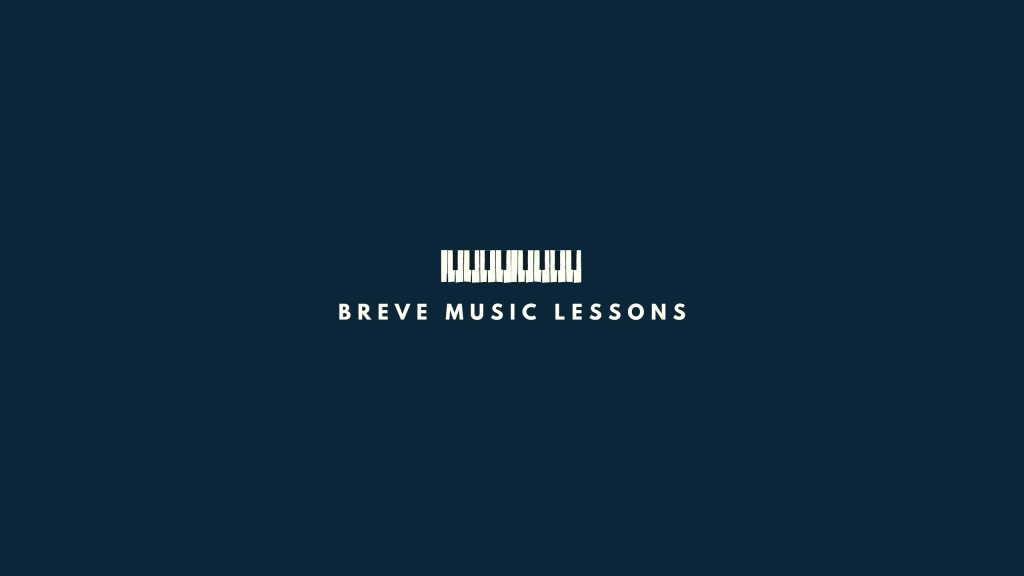Table of Contents
Secrets of the Music Industry: Unveiling the Dark Side of Fame and Exploitation
The music industry is often romanticized, with dreams of fame and fortune captivating aspiring artists. However, beneath the glitz and glamour lies a complex web of challenges, exploitation, and mental health struggles. This article delves into the unsettling experiences within the music industry, offering insights into how musicians can navigate this treacherous terrain while also exploring the secrets behind music promotion and marketing. Understanding these elements is crucial for any artist aiming to thrive in a competitive music scene.

What Are the Unsettling Experiences in the Music Industry?
Understanding the Secrets of the Music Industry
The dark side of the music industry is often shrouded in secrecy, with many artists unaware of the potential pitfalls that await them. From the moment a musician signs a contract with a label, they may find themselves entangled in a system that heavily favors record labels over the artists themselves. This exploitation can manifest in various forms, including unfair revenue splits, lack of creative control, and even emotional manipulation. Many artists enter the industry with aspirations of success, only to discover that the reality is fraught with challenges that can take a toll on their mental health and overall well-being.
Common Exploitation Tactics Used by Labels
Record labels often employ tactics that can lead to the exploitation of artists. For instance, they may offer lucrative contracts that seem appealing at first glance but are laden with hidden clauses that restrict an artist’s freedom. These contracts can dictate everything from the number of albums an artist must produce to the percentage of royalties they receive. Additionally, labels may pressure musicians to conform to specific genres or trends, stifling their creativity in the process. This exploitation is not just a financial issue; it can also lead to a loss of identity and artistic integrity, leaving many artists feeling trapped in a system designed to benefit the label rather than the musician.
How Mental Health is Affected by Fame
The pursuit of fame can have profound effects on an artist’s mental health. The pressure to maintain a public persona, coupled with the scrutiny that comes with being in the spotlight, can lead to anxiety, depression, and burnout. Many musicians report feeling isolated despite their fame, as the industry often prioritizes image over genuine connection. The constant need to promote oneself on social media platforms like Instagram can exacerbate feelings of inadequacy and self-doubt. It’s essential for artists to prioritize their mental health and seek support, whether through therapy or by building a network of trusted peers who understand the unique challenges of a career in music.
How Can Musicians Thrive in a Competitive Music Industry?
Essential Marketing Strategies for Emerging Artists
For emerging artists, effective marketing strategies are crucial for standing out in the competitive music industry. Musicians should focus on building a personal brand that resonates with their target audience. This involves creating a cohesive image across all platforms, from album artwork to social media profiles. Utilizing digital marketing techniques, such as email campaigns and targeted ads, can help artists reach potential fans and increase their visibility. Additionally, engaging with followers through live streams and Q&A sessions can foster a sense of community and loyalty among fans, which is invaluable for an artist’s career.
Building a Strong Online Presence on Platforms like LinkedIn
While social media platforms like Instagram and TikTok are popular for music promotion, LinkedIn can also be a powerful tool for musicians. By creating a professional profile, artists can connect with industry insiders, producers, and potential collaborators. Sharing insights about their music journey, upcoming projects, and industry trends can position them as thought leaders in the music scene. Networking on LinkedIn allows musicians to build valuable connections that can lead to opportunities for collaboration, gigs, and even record deals, helping them navigate the complexities of the music industry more effectively.
Networking Tips for Musicians to Gain Industry Insight
Networking is a vital component of a successful career in music. Musicians should actively seek opportunities to connect with other artists, producers, and industry professionals. Attending music festivals, workshops, and industry conferences can provide invaluable insights and foster relationships that may lead to future collaborations. Additionally, joining online forums and communities can help artists share experiences and gain advice from those who have navigated the industry’s dark side. Building a robust network not only opens doors to new opportunities but also provides a support system that can help artists thrive amidst the challenges of the music industry.
What Should Artists Know About Contracts in the Music Industry?
Key Elements to Look for in a Music Contract
Understanding the intricacies of music contracts is essential for any artist looking to protect their interests. Key elements to scrutinize include the duration of the contract, the rights to the music, and the financial terms. Artists should be wary of contracts that grant labels extensive control over their work, as this can limit their creative freedom and financial returns. It’s advisable for musicians to seek legal counsel before signing any agreements to ensure they fully understand the implications of the contract and can negotiate terms that are fair and beneficial.
Understanding the Implications of Signing with a Label
Signing with a label can be a double-edged sword for artists. While it may provide access to resources, marketing, and distribution channels, it can also lead to a loss of control over their music and career direction. Artists should carefully consider the implications of signing with a label, including the potential for exploitation and the impact on their artistic vision. It’s crucial to weigh the benefits against the risks and to explore alternative options, such as independent releases, which can offer greater creative freedom and financial control.
How to Negotiate Fair Terms for Your Music
Negotiating fair terms in a music contract is vital for protecting an artist’s rights and ensuring a sustainable career. Musicians should approach negotiations with a clear understanding of their worth and the value they bring to the table. This includes being prepared to discuss their fan base, streaming numbers, and any previous successes. Artists should not hesitate to advocate for themselves, seeking terms that reflect their contributions and aspirations. Building a strong support team, including managers and legal advisors, can also provide valuable guidance during negotiations, helping artists secure contracts that align with their goals.
What Are the Secrets Behind Music Promotion and Marketing?
Effective Techniques for Promoting Your Album
Promoting an album requires a multifaceted approach that combines traditional marketing techniques with modern digital strategies. Artists should consider hosting listening parties, engaging in interviews, and leveraging press releases to generate buzz around their album release. Additionally, creating visually appealing content, such as music videos and behind-the-scenes footage, can enhance engagement and attract attention on social media platforms. Collaborating with influencers and other artists can also amplify reach and introduce the music to new audiences, making it essential for musicians to think creatively about their promotional strategies.
Utilizing Social Media for Music Marketing
Social media has revolutionized the way artists promote their music, providing a direct channel to connect with fans and share their work. Platforms like Instagram, TikTok, and Twitter allow musicians to showcase their personalities, share snippets of their songs, and engage with their audience in real-time. Regularly posting content, such as updates on new releases, tour dates, and personal stories, can help maintain fan interest and loyalty. Additionally, utilizing targeted ads on these platforms can effectively reach specific demographics, ensuring that the music resonates with the right audience.
Creating Engaging Ads to Reach Your Target Audience
Creating engaging ads is crucial for capturing the attention of potential listeners in a crowded market. Musicians should focus on crafting compelling narratives that highlight their unique sound and artistic vision. Utilizing eye-catching visuals and concise messaging can help convey the essence of the music while encouraging listeners to explore further. Additionally, targeting ads based on listener preferences and behaviors can enhance effectiveness, ensuring that promotional efforts reach those most likely to appreciate the artist’s work. By investing time and resources into effective advertising strategies, musicians can significantly increase their visibility and grow their fan base.
How Does Genre Influence Success in the Music Industry?
Exploring Different Genres and Their Marketability
The genre of music an artist chooses to pursue can significantly influence their success in the industry. Certain genres, such as pop and hip-hop, tend to dominate the charts and attract larger audiences, while indie and niche genres may have smaller but more dedicated fan bases. Understanding the marketability of different genres is essential for artists when crafting their sound and marketing strategies. Musicians should consider their personal style and aspirations while also being aware of current trends and audience preferences to find a balance that resonates with listeners.
The Role of Musical Trends in Shaping Artist Careers
Musical trends play a pivotal role in shaping the careers of artists within the music industry. Staying attuned to emerging trends can provide valuable insights into what resonates with audiences and can inform an artist’s creative direction. However, it’s important for musicians to remain authentic and true to their artistic vision, rather than simply chasing trends for commercial success. Balancing personal expression with an awareness of the industry’s evolving landscape can help artists carve out a unique space for themselves while still appealing to a broad audience.
Spotlight on Unheard Talents in Various Genres
While mainstream artists often dominate the conversation, there is a wealth of unheard talents across various genres waiting to be discovered. These indie musicians often bring fresh perspectives and innovative sounds that challenge the status quo of the music industry. By shining a spotlight on these artists, we can celebrate diversity in music and encourage listeners to explore beyond the mainstream. Platforms that promote indie music and provide opportunities for emerging artists to showcase their work are essential for fostering a vibrant and inclusive music scene.
Additional Reading
More blog posts can be found here. Consider following Breve Music Lessons on Facebook.
